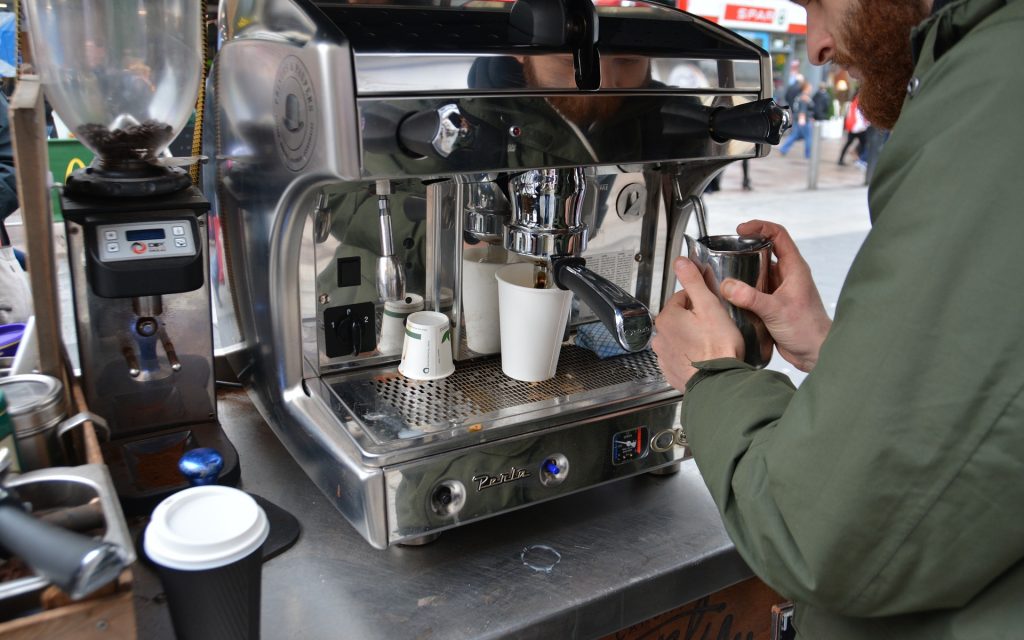 Economy
Economy 
As the Bevan Foundation continues to mark Challenge Poverty Week, Nisreen Mansour from Wales TUC outlines why Covid-19, work and poverty are all interconnected
Talk of recovery feels less and less relevant every day as new restrictions are announced, with an increasing number of workers impacted. Unions are already dealing with a deluge of redundancy notices, attempts to fire and rehire on worse terms and conditions, and a rise in illegal discriminatory practices.
I want to use this blog to reflect on the overlap between covid, bad jobs and poverty. There are definitely lessons that need to be acted upon as the crisis continues. I’ve highlighted two issues here:
- the risk that covid regulations pose for those already experiencing in-work poverty, and
- the relationship between poverty and risk.
Covid restrictions are an employment issue
Almost every time a new Covid restriction is introduced, there is an employment angle. And in almost every case, there is a risk that those already getting a bad deal from our economy will be worse off. We can’t let this crisis deepen people’s poverty, but without worker-focussed support packages there is a real risk this could happen. The Resolution Foundation have already shown that low paid workers have borne the brunt of this crisis).
Take the 10pm curfew in the hospitality industry. This is a sector where precarious work is rife. For many workers, this curfew would mean a cut in pay, and for some – like those who work in nightclubs – it would mean losing shifts altogether. These workers are typically low paid, in insecure roles and therefore at greater risk of poverty. And there’s an impact further down the chain too. Taxi drivers, for example, haven’t been able to benefit from the additional support for the hospitality industry introduced to correspond with the restrictions, but have undoubtedly been heavily affected by the curfew.
We need to assess impact
Everyone appreciates that the public health measures are absolutely necessary to curb the spread of the virus. But it seems clear now that these measures will be with us much longer than originally anticipated. We therefore need a more sophisticated way to analyse the impact of restrictions, to know where support should be targeted. We need to get to the point where no worker is left to fend for themselves, forced to sell their taxi or take on yet another job to make ends meet.
When a large business closes, support is targeted directly at the firm and their supply chain. The same approach needs to be taken to Covid regulations and those who are affected. An employment impact assessment should be produced alongside any new Covid regulations so that government, unions and support agencies can respond.
The importance of lived experience
In yesterday’s Bevan Foundation webinar, Steffan Evans talked us through the importance of lived experience in policy very eloquently. I think there’s been no better case for how much this is needed than the situation we’ve found ourselves in over the last 6 months.
One example really stood out. The outbreaks in meat processing plants in the summer were something we had all been dreading. In the unionised sites, we knew policies were in place to mitigate the spread of the virus, but we were also aware that the nature of the work and the conditions in the factories made it far more likely to spread. We remain very concerned about what workers face in non-unionised sites.
What was interesting in relation to the government response was how poorly understood the sector was and how poverty played a significant role in terms of risk. Many workers were car-pooling, hot-bedding and working at multiple sites. And they were doing this because their work is really poorly paid. This wasn’t immediately apparent to those responsible for responding.
Perhaps it’s my own privilege of having worked for an anti-poverty organisation or getting to spend much of my job thinking about these issues, but it was surprising how long it took for these factors to be taken into account.
This is why it was absolutely critical to have the voice of workers round the table.
Unions were able to highlight what workers’ lives were like, how this played a role in risk, and how other measures like proper sick pay and providing information in multiple languages were key. Having this lived experienced – and in the case of workers, their collective voice – is absolutely vital if we’re to understand and mitigate the impact of poverty on risk. As we continue to regulate to slow the spread of the virus, this lesson must be addressed.
Nisreen Mansour is a Policy Officer at the Wales TUC


